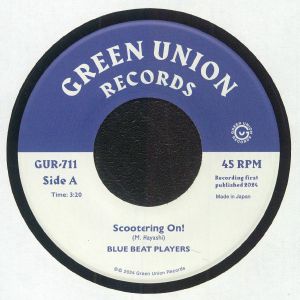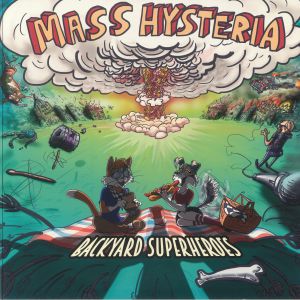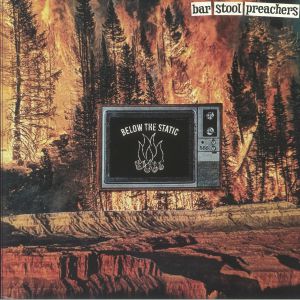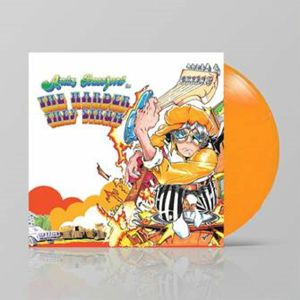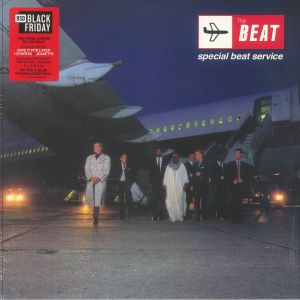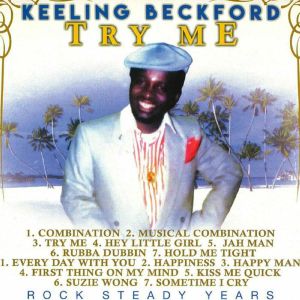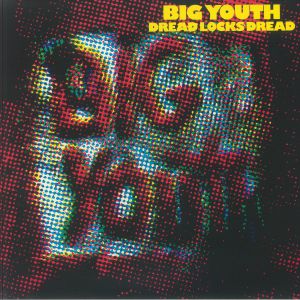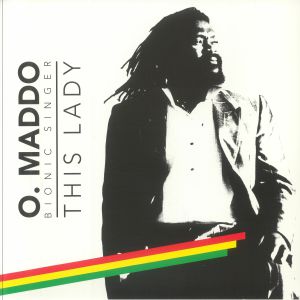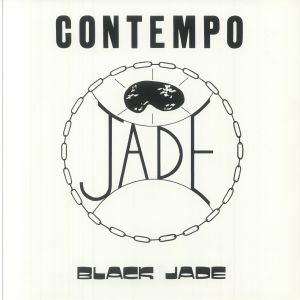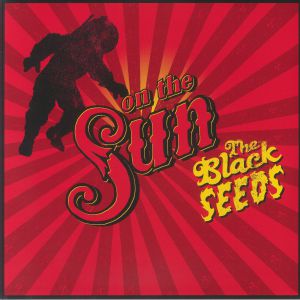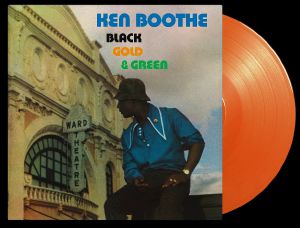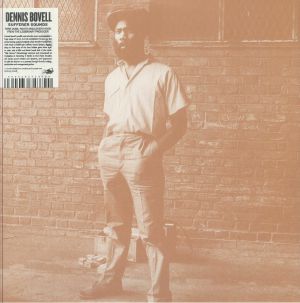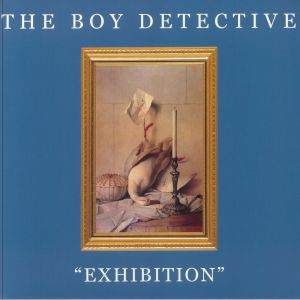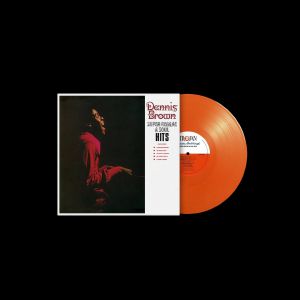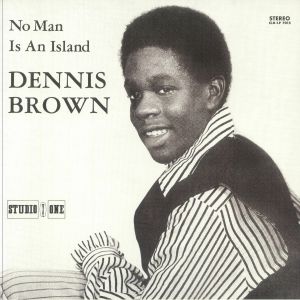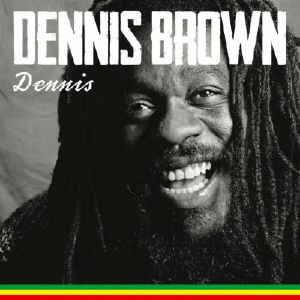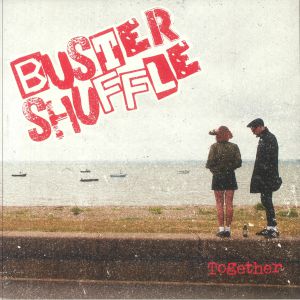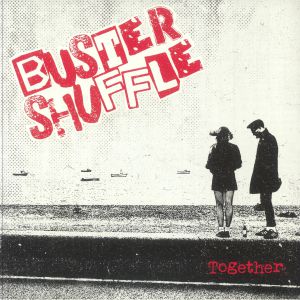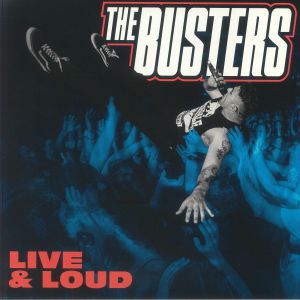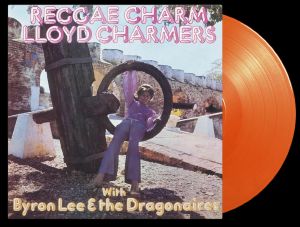Back catalogue: All genres
Juno's full catalogue of All genres
Singles
Review: The Blue Beat players step up to Japan's Green Union label with a pair of heavily ska-influenced and uptempo reggae rockers. 'Scootering On!' taps into that scene's love of a Lambretta and the joys that day rides bring, all with twisted guitar lines and some big, body brass energy. On the flip, 'Marseille Soleil' is a more subdued sound with warm, smeared organ chords, more lazy and gentle horn work and a rhythm that sways to and fro on fat dub undercurrents. Two lovely cuts on a very nice 7".
… Read more in stock $24.07
Alben
in stock $29.44
Below The Static (limited 1-sided screen-printed clear splattered vinyl LP)
Cat: PNE 414. Rel: 12 Sep 24
Punk/Hardcore
in stock $22.09
The Harder They Strum (reissue) (translucent orange vinyl LP)
Cat: JUMP 161LPO. Rel: 21 May 25
Klassiker/Ska
in stock $29.17
Special Beat Service (Record Store Day Black Friday RSD 2024) (limited gatefold red & blue vinyl 2xLP)
Cat: 060349 7822300. Rel: 12 Dec 24
Klassiker/Ska
Review: Originally released under the name The English Beat in 1982, this album sees the Two Tone experts spreading their wings and incoporating African vibes and jazz into their revolutionary sound. It's joyful, party-fuelling stuff but usually with a social message snuck in for good measure, which is just how we like it. Throw in some bonus studio and live tracks on this double deluxe RSD version and it really can't be Beat.
… Read more in stock $48.42
Review: Jamaican rocksteady grandstander Keeling Beckford enjoyed a near three-decade hiatus after the release of his second album Stay Tuned, which would have seemed to round out his LPs game for good (though his usual remit of 7"s would carry on strong). So it of course came as a surprise that he might release a brand new record as recently as 2019, on the very same New York reggae and early hip-hop label 12 Star, which Beckford helped found way back in 1978. The label was also graced by Horace Andy and Delroy Wilson over the years. Try Me now hears a reissue through his own Keeling Records sublabel: here, Beckford's stylistic rocksteady rollicks take the form of loving lullabies, where all the tracks seem dedicated to the smitten-sounding voice heard through the wire in the opening sequence. Angelic, intumescent, cloud nine rocksteady, from a real and enduring Kingston great.
… Read more in stock $38.50
Big Ska Band (reissue) (red vinyl LP limited to 200 copies)
Cat: JUMP 148LPR. Rel: 19 May 25
Klassiker/Ska
in stock $29.17
Review: Dread Locks Dread, originally released in 1975 on KLIK Records and reissued by Front Line in 1978, stands as one of Big Youth's most defining albums. Known for his innovative DJ style, Big Youth's chant-like toasting brought a melodic, rhythmic energy to socially charged lyrics, making him one of reggae's most distinctive voices in the early 1970s. This album, featuring the legendary Skin, Flesh and Bones band with Lloyd Parks on bass and a young Sly Dunbar on drums, delivers a blend of punchy reggae rhythms and deep, immersive dub. Produced by Tony Robinson and Errol Thompson at Joe Gibb's studio, Dread Locks Dread shows Big Youth's ability to elevate classic reggae tracks with his unique vocal style. Highlights include 'Some Like It Dread', a reinterpretation of Dennis Brown's 'Some Like It Hot', enriched by bluesy harmonica, and 'Marcus Garvey Dread', a fiery version of Burning Spear's anthem. The album also features a brilliant take on John Holt's 'Keep on Moving' and a dub-heavy version of the Techniques' 'You Don't Care'.
… Read moreGespielt von: Juno Recommends Reggae
in stock $27.17
in stock $24.64
Review: An attention-evader even for the most ardent dub reggae fan, Black Jade's Contempo remains a mystery decades after its release. In the act of reissuing the LP, Solid Roots still only partly lift the veil: first set to tape between 1975 and 1976, the album was recorded by a still shadowy cadre of Notting Hill residents, who are said to have freely distributed it during Carnival. Their continued anonymity may form part of a decided effort to mythologise, though it almost certainly also reflects a niche facet of deeper-shades dub. Authenticity abounds: we hear preemptions of the hiss-floored undulations of Chain Reaction in this record as much as we do the busy instrumental imbroglios of Horace Andy, with the manly bass-charges of 'Virulence' polarising the sensitive subby coos of 'Love, Love, Love'.
… Read moreGespielt von: Piers Harrison
in stock $21.80
Review: During Wellington's cultural renaissance, The Black Seeds emerged as trailblazers and soon hooked in audiences with their energetic live shows and earning a reputation as summer festival favourites. In 2004, they blended funk and soul into their signature roots-reggae style to create this, their second studio album which became not only a Triple Platinum album but also a defining moment in modern New Zealand music history. Featuring three hit singles and including the Quadruple Platinum anthem 'So True,' this record embodies the Kiwi summer spirit and Gareth Moon's accompanying video with the band cruising sunlit locales in a classic Holden wagon only cemented that legacy.
… Read more in stock $37.66
Black Gold & Green (reissue) (limited numbered 180 gram audiophile orange vinyl LP)
Cat: MOVLP 3755C. Rel: 18 Sep 24
Roots/Lovers Rock
Review: Black, Gold & Green was the first of three albums Ken Boothe recorded with producer Lloyd Charmers, who did fine job of elevating his Memphis-via-Kingston sound. Featuring some of Boothe's finest soul vocals, standout tracks include 'Out of Love,' 'Missing You,' and the gritty 'Second Chance' which offers up a vocal style reminiscent of the one and only dock man, Otis Redding. Rooted in powerful religious and social messages, the album carries a deep political undertone throughout. Quite notably, it also features a superb cover of Bill Withers' lovely 'Ain't No Sunshine' as part of an album that marked a significant evolution in Boothe's fusion of Jamaican soul and reggae.
… Read more in stock $35.11
Review: Dennis Bovell's Sufferer Sounds vinyl compilation showcases an essential chapter in his diverse career, focusing on his contributions from 1976 to 1980. With 15 tracks, including a rare dub mix of Janet Kay's celebrated Silly Games, all meticulously restored and remastered at Dubplates & Mastering in Berlin. The vinyl edition brings a fresh and clear sound to these tracks, allowing listeners to fully appreciate the warmth and depth of Bovell's arrangements. Renowned for blending genres, Bovell's exceptional production skills shine throughout this collection. Accompanying the music are insightful notes by Bovell that provide reflections on each track's creation. The sequencing of the album takes the listener on a compelling journey through his emotive and dynamic music, revealing the depth of his talent. One of the best compilations we have heard in some time.
… Read moreGespielt von: Alexis Le-Tan, Mukatsuku Records Chart
in stock $35.68
in stock $22.37
Super Reggae & Soul Hits (limited numbered 180 gram audiophile orange vinyl LP)
Cat: MOVLP 2894C. Rel: 19 Feb 25
Klassiker/Ska
Review: First released in 1972, this authentic and essential reggae album showcased the most popular tracks recorded by a young Dennis Brown under the guidance of renowned producer Derrick Harriott. The third album in Brown's career, Super Reggae and Soul Hits marked a significant turning point and helped to establish him as a versatile singer-songwriter capable of crafting deeply soulful music. It highlighted his ability to connect with an adult audience as he explored the interaction of reggae with soul influences, emotional depth and musical maturity. This album played a crucial role in solidifying Brown's reputation as one of reggae's most influential artists so remains an essential part of his story.
… Read more in stock $34.55
Review: Dennis Brown's No Man Is An Island is a prime example of the reggae legend's emotive vocals and unmatched delivery. His voice, laden with warmth, effortlessly conveys the song's message of self-reliance, bolstered by Studio 1's signature rhythmic backdrop. The track's production features tight drum patterns and rolling bass, creating a captivating groove that allows Brown's soulful performance to shine. On the flip, 'Going To A Ball' brings a change of pace, with its lively horns and upbeat tempo, showcasing his versatility. Both tracks capture the essence of Brown's contribution to reggae, marking him as one of the genre's most enduring and influential figures.
… Read moreGespielt von: Juno Recommends Reggae
in stock $45.30
in stock $22.64
Together (limited transparent green vinyl LP + insert (indie exclusive))
Cat: CG 165346LP. Rel: 01 Apr 25
Klassiker/Ska
in stock $31.71
in stock $23.77
in stock $28.60
Reggae Charm (reissue) (limited numbered 180 gram audiophile orange vinyl LP)
Cat: MOVLP 3758C. Rel: 12 Aug 24
Klassiker/Ska
Review: Reggae Charmers was originally released in 1970 and it showcased the best of Lloyd Charmers, who was born Lloyd Tyrell. His career spans Jamaica's vibrant musical eras from the late 50s shuffle r&b and ska boom to the rocksteady and roots reggae of the 60s and 70s. Across those years, Charmers excelled as a vocalist, session musician, and producer and after taking up the piano in 1966, he soon formed his own band. It backed artists like Ken Parker, Max Romeo, Pat Kelly, John Holt, and Slim Smith & the Uniques while Charmers also sang with the Uniques and gained a reputation for delivering some of the era's most compelling rhythms.
… Read more in stock $32.84

 USD
USD






